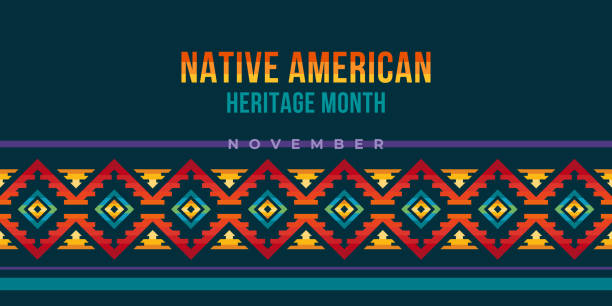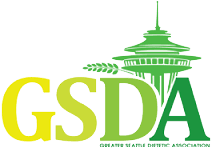Native American Heritage Month

By Kana Ogaki
The Pacific Northwest, land of Coast Salish peoples, is one of the epicenters of indigenous food sovereignty movements in the US. Revitalizing traditional knowledge, foodways, and food systems is one way to support holistic health and wellbeing. Indigenous ecological philosophy includes the physical, mental, social, and spiritual components of health in harmony with the ecological gifts of the natural world. In the age of the industrialized food system, the traditional knowledge of the American Indian also helps dismantle upstream factors of global epidemics of diet-related chronic disease and unsustainable food production in the face of climate change.
Prior to colonization, Coast Salish peoples in the Pacific Northwest and Canada utilized more than 280 different plants, birds, mammals, fish, reptiles, shellfish and other marine life in their traditional dietary patterns.3,4 Coast Salish peoples’ physical and spiritual connection to the land and waters allowed them to build their tribal identity, to sustainably manage nature’s blessings with respect, and to flourish for more than 4000 years in the area.5 This changed when non-Native settlers, between 1854-1856, forced multiple tribes of Coast Salish peoples to agree upon treaties, which made them give up millions of acres of lands, restricting their traditional foodways, including fishing, hunting, and foraging, and displaced them to unfamiliar lands (today’s tribal reservations).6,7 These traumas made it increasingly hard for Coast Salish peoples to collect traditional foods. Federal government further erased Coast Salish peoples’ traditions, identities, and foodways by putting their children in boarding schools.8 The loss of traditional lands and waters, knowledge, foodways, and food systems and the dislocation to unfamiliar remote lands imposed them to be socioeconomically disadvantaged in the society and made them rely on the federal nutrition assistance program, such as FDPIR (the Food Distribution Program in Indian Reservations) and SNAP (Supplemental Nutrition Assistance Program).2,9 As a result, American Indian and Alaska Native (AI/AN) including Coast Salish peoples have been experiencing higher rates of mortality from diet-related chronic disease, such as diabetes and cardiovascular disease, in the United States.1,2
Food sovereignty movements emerged in the late 2000s to revitalize traditional foodways in response to these adverse health trends among indigenous communities. In the Greater Seattle area, the Muckleshoot Food Sovereignty Project was founded in 2010.10 Food sovereignty is defined as the right of peoples to healthy and culturally appropriate foods produced through ecologically sound and sustainable methods, and their right to define their own food and agricultural systems.11 To regain food sovereignty, the Muckleshoot Tribe has bought back over 93,000 acres of ancestral land that they cultivated with traditional foods in orchards and raised garden beds.12 Using the lands with traditional plants and herbs, the Muckleshoot tribe initiated programmings providing educational and community-building opportunities for tribal members to relearn about traditional foods and herbal medicines .13 In these programmings, traditional foods and plants, such as salmon, clams, and root vegetables, were also cooked in the community’s traditional stone pit and shared with the community. Collaborating with traditional cooks, over 1000 meals a day using traditional plants and herbs harvested from the land were served to tribal elderly community centers and schools. Training was also provided to a group of herbalists and teachers at tribal schools on techniques to forage traditional berries, such as huckleberries, and medical herbs, so that they could disseminate the knowledge to family, friends, neighbors, and students.13 These programmings helped the Muckleshoot tribe revitalize traditional knowledge of foods and herbal medicine and access culturally appropriate foods that could provide physical, mental, social, and spiritual health and well-being.
The Greater Seattle Dietetic Association acknowledges that we work on the unceded, traditional land of the Coast Salish peoples, which touches the shared waters of all tribes and bands within the Duwamish, Suquamish, Tulalip, and Muckleshoot nations. We appreciate the blessings from the lands and waters that were historically and that continue to be nurtured by the Coast Salish peoples. We also highlight the importance of culturally appropriate eating for our holistic health and well-being. Supporting indigenous food sovereignty is one way to support health equity among Coast Salish peoples and the AI/AN population.We work together to address the indigenous food sovereignty for holistic health of the Coast Salish peoples.
As experts of nutrition and diet, let’s learn how we can collaborate and re-imagine a future food system that sustainably provides healthy and culturally appropriate foods to all people from indigenous communities. The following is the list of resources about indigenous sovereignty.
Resources:
-
TEDx talk event given by Valerie Segrest, a native nutrition educator, on November 9, 2013 in Seattle at TEDxRainier: https://www.youtube.com/watch?v=RGkWI7c74oo
-
Smithsonian National Museum of the American Indian: Pacific Northwest History and Cultures Why do the Food We Eat Matters (including information on the Muckleshoot Food Sovereignty Project): https://americanindian.si.edu/nk360/pnw-history-culture
-
University of Washington News & Stories: Honoring American Indian and Alaska Native Heritage Month (including recommended books and articles): https://artsci.washington.edu/news/2022-11/honoring-american-indian-and-alaska-native-heritage-month
-
Burke Museum News & Stories: Revitalizing traditional Coast Salish food knowledge:https://www.burkemuseum.org/news/reviving-traditional-coast-salish-food-knowledge
-
Seattle Times Project: First Foods How Native people are revitalizing the natural nourishment of the Pacific Northwest by Lynda Mapes published on July 22, 2022:https://projects.seattletimes.com/2022/first-foods-native-people-pacific-northwest-preserving/
-
Gastropod: “What is Native American Cuisine?” on November 2016 on Spotify
https://open.spotify.com/episode/7mnIIDSGFMXNjVGa03x7UD?si=1zz5cceDTUiwyc9-VU4e5w&nd=1
References:
